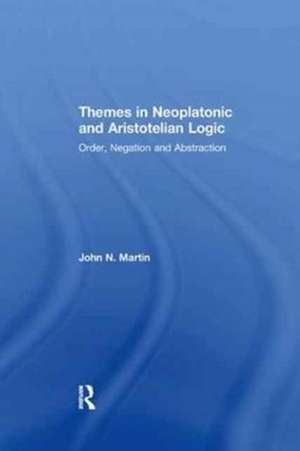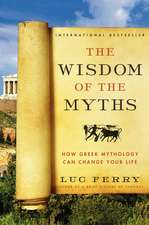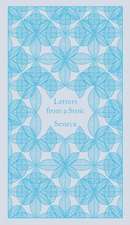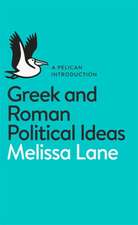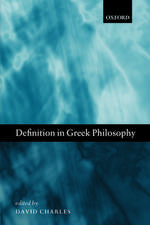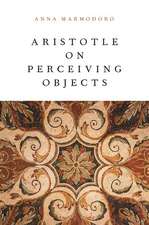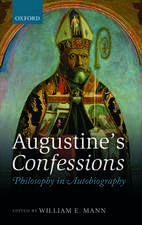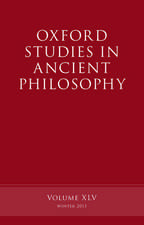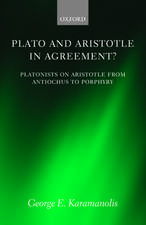Themes in Neoplatonic and Aristotelian Logic: Order, Negation and Abstraction
Autor John N. Martinen Limba Engleză Paperback – 27 feb 2017
| Toate formatele și edițiile | Preț | Express |
|---|---|---|
| Paperback (1) | 469.34 lei 6-8 săpt. | |
| Taylor & Francis – 27 feb 2017 | 469.34 lei 6-8 săpt. | |
| Hardback (1) | 1000.27 lei 6-8 săpt. | |
| Taylor & Francis – 25 noi 2004 | 1000.27 lei 6-8 săpt. |
Preț: 469.34 lei
Nou
Puncte Express: 704
Preț estimativ în valută:
89.81€ • 93.96$ • 74.60£
89.81€ • 93.96$ • 74.60£
Carte tipărită la comandă
Livrare economică 02-16 aprilie
Preluare comenzi: 021 569.72.76
Specificații
ISBN-13: 9781138251021
ISBN-10: 113825102X
Pagini: 218
Dimensiuni: 156 x 234 x 12 mm
Greutate: 0.45 kg
Ediția:1
Editura: Taylor & Francis
Colecția Routledge
Locul publicării:Oxford, United Kingdom
ISBN-10: 113825102X
Pagini: 218
Dimensiuni: 156 x 234 x 12 mm
Greutate: 0.45 kg
Ediția:1
Editura: Taylor & Francis
Colecția Routledge
Locul publicării:Oxford, United Kingdom
Cuprins
Contents: Introduction: Neoplatonism; Algebra; Publication data; Aristotle's natural deduction reconsidered; Background ideas in natural deduction; The syllogistic; Soundness and completeness; Ecthesis and existence in the syllogistic: Existence, negation, and abstraction in the neoplatonic hierarchy; A neoplatonic logic of existence; Neoplatonic abstraction as negation; A tense logic for Boethius; Proclus on the logic of the ineffable; Proclus and the neoplatonic syllogistic; Ammonius on the canons of Proclus; All brutes are subhuman: Aristotle and Ockham on privative negation; Lukasiewicz' many-valued logic and neoplatonic scalar modality; Bibliography; Indexes.
Descriere
Were the most serious philosophers of the millennium A.D. 200 to A.D. 1200 just confused mystics? This book shows that such was not the case. John Martin rehabilitates Neoplatonism, founded by Plotinus and brought into Christianity by St Augustine. The Neoplatonists devise ranking predicates like good, excellent, perfect to divide the Chain of Being, and use the predicate intensifier hyper so that it becomes a valid logical argument to reason from God is not (merely) good to God is hyper-good. In this way the relational facts underlying reality find expression in Aristotle's subject-predicate statements, and the Platonic tradition proves able to subsume Aristotle's logic while at the same time rejecting his metaphysics. In the Middle Ages, when Aristotle's larger philosophy was recovered and joined again to the Neoplatonic tradition which was never lost, Neoplatonic logic lived alongside Aristotle's metaphysics in a sometimes confusing and unsettled way. Showing Neoplatonism to be significantly richer in its logical and philosophical ideas than it is usually given credit for, this book will be of interest not just to historians of logic, but to philosophers, logicians, linguists, and theologians.
